Trade to trade car marketplace
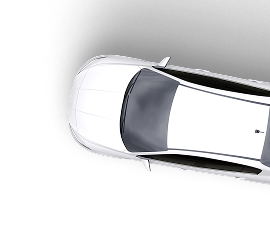

Trade-only marketplace
Flexible selling options
Maximise your profits
Buying a used car in the UK doesn’t have to be a gamble. This guide breaks down the best places to buy one online and offline, plus the checks, red flags and insider tips you need to shop smart, avoid scams and drive away with confidence.
Last updated: 4th August, 2025

Listen to this story
Buying a used car is one of the smartest financial decisions most drivers can make. You avoid the steep depreciation of a brand-new car, you get more for your money, and if you know where to look, there are some absolute bargains out there.
But unless you're a motor trader, chances are you're not doing this all the time. Most people only buy a handful of used cars in their lifetime, if that. That makes the process a bit daunting. Where do you even start? Who can you trust? And how do you avoid getting stung?
We’ve been in the trade for years. We’ve seen it all: auction house bidding wars, flawless low-mileage gems, clocked motors, shady dealers and everything in between. We know what makes a good deal and what smells off the minute you see it listed.
This guide is written from the trader’s side of the fence, but it’s for everyday buyers. You don’t need to be an expert. You just need to know where to go and what to expect.
Used car sales hit over 2 million transactions in Q1 alone. That’s a 2.7% increase year-on-year, making it the ninth straight quarter of growth. Meanwhile, the new car market has slumped. It’s down 10.4% in April 2025 as buyers steer towards better value in the second-hand space.
Why the shift?
It comes down to affordability. With household budgets under pressure, more people are turning to used cars where you get more for your money. For a 5-to-10-year-old vehicle, prices average £13,866 — considerably cheaper than a new car and with much of the same technology.
And if you’ve been holding out for a used EV, now’s your moment.
In 2024, the UK saw a record-breaking 188,382 used electric vehicles sold (a 57.4% jump). Falling prices on models like the Tesla Model 3 and Kia e‑Niro have made EVs far more accessible, which finally makes the second-hand market a real contender in the electric space.
Bottom line?
It’s a strong seller’s market, but that doesn’t mean you can’t find what you want. The demand’s there, the stock is growing, and the variety (especially for EVs) is better than ever. You won’t score rock-bottom prices, but you’ll have more choice and quality than any time in recent memory.
If you value convenience, broad selection, and minimal hassle, buying online is probably the best route. But if you're someone who prefers to see, hear and touch before committing or you’re chasing a deal on an older car, buying in person suits you better.
Here’s how both methods stack up.
Online platforms like Cinch, Cazoo and even Auto Trader’s instant purchase options have made buying a car online easier than ever. The main draw is convenience. You can browse hundreds of listings, complete the purchase in minutes, and have the car delivered to your door—all without leaving the house.
Many online retailers offer fixed pricing, vehicle history checks and warranties built into the deal. Some even include generous return windows, giving you 7 to 14 days to change your mind after delivery.
The trade-off is that you don’t get to test-drive the car before paying. You’re relying on photos, descriptions and trust in the platform. Prices also tend to be slightly higher, since these services factor in delivery, cleaning, admin and profit margins.
The traditional way — visiting a local dealer or meeting a private seller — still holds a lot of value, especially if you want to see, touch and test the car before committing.
In-person buying gives you more control. You can inspect the vehicle, ask direct questions, and take it for a drive. You’re also more likely to find older, high-mileage cars and negotiate the price, especially with private sellers or smaller traders.
On the downside, buying in person is time-consuming. You’ll need to make appointments, travel to different locations, and be prepared to walk away if something doesn’t check out. In the case of private sales, there’s also less built-in buyer protection (i.e. no warranty or return obligation).
If you’re buying a car under eight years old and want a stress-free experience, buying online is a great fit. You’ll pay a bit more, but it’s fast, reliable, and comes with a safety net.
If you're budget-conscious, more comfortable assessing a car yourself or looking for something specific that’s unlikely to show up on retail platforms, buying offline gives you more options and greater negotiating power.
TL;DR: Go online for convenience. Go in person for control.
Best online platforms to buy a second-hand car in the UK (2025)
Without further ado, let’s dive into the best platforms to buy a second-hand car in the UK and what kind of buyer they’re best for.
Trader.co.uk
If you’re a motor trader, Trader.co.uk is your best bet. It’s an application-only trade-to-trade marketplace you can use to buy lower-end cars: accident-damaged vehicles, MOT failures, Cat S/N write-offs and the like.

We solely deal in trade-only stock and vet every car that’s listed on our platform. That means you’re going to find better deals in terms of price vs quality here than practically anywhere else. And since we facilitate real-time negotiations and transactions, you can get deals done ASAP.
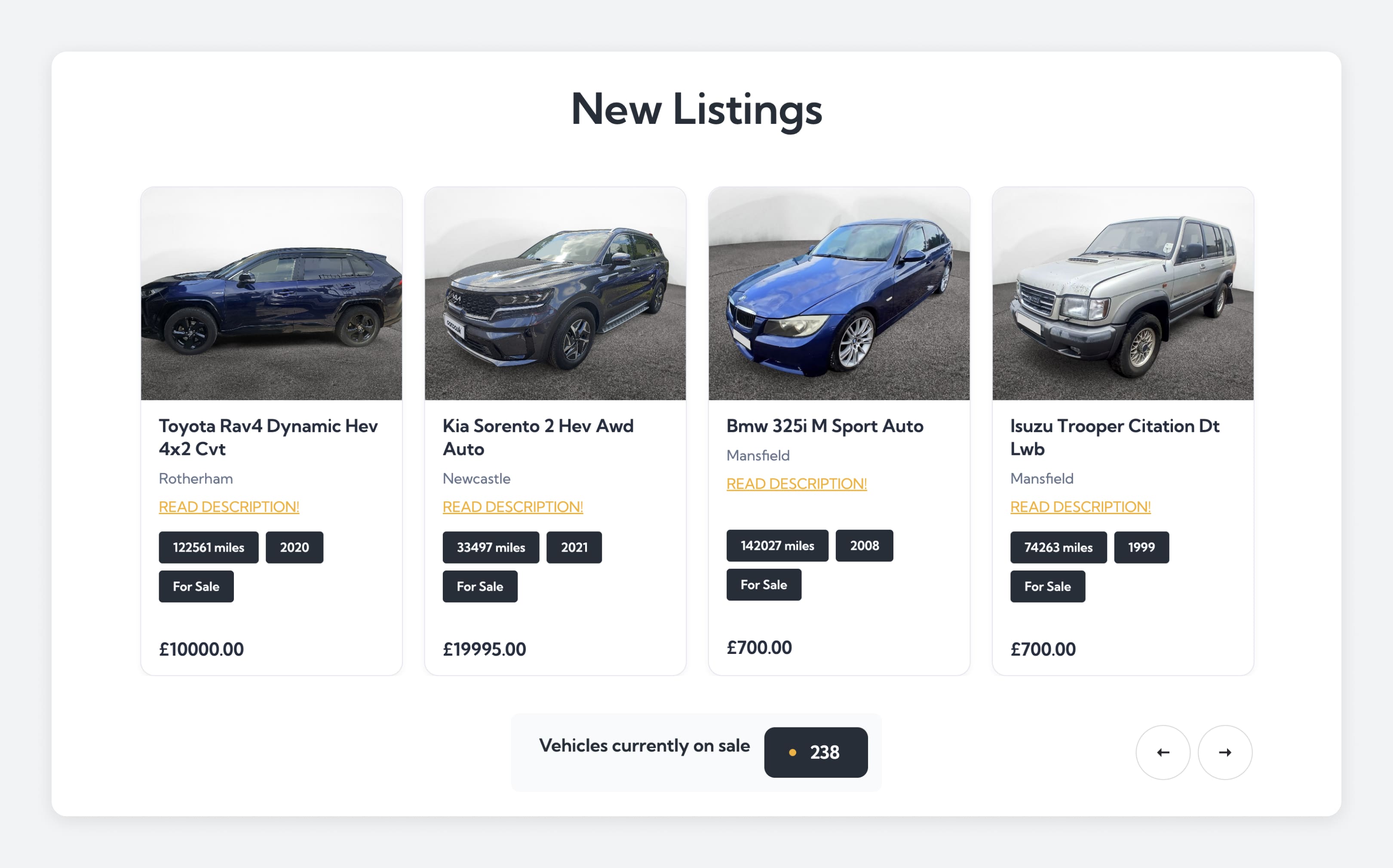
And since buyers and sellers have to apply before joining, let alone listing, every vehicle you see comes from an expert-vetted seller. That eliminates the risks of dealing with dodgy sellers or buying a car that’s not as it seems on the surface. You can always trust what you’re buying.
AutoTrader is still the heavyweight champion of used car listings in the UK. With ~450,000 vehicles listed from both private sellers and dealers, it gives buyers maximum flexibility.
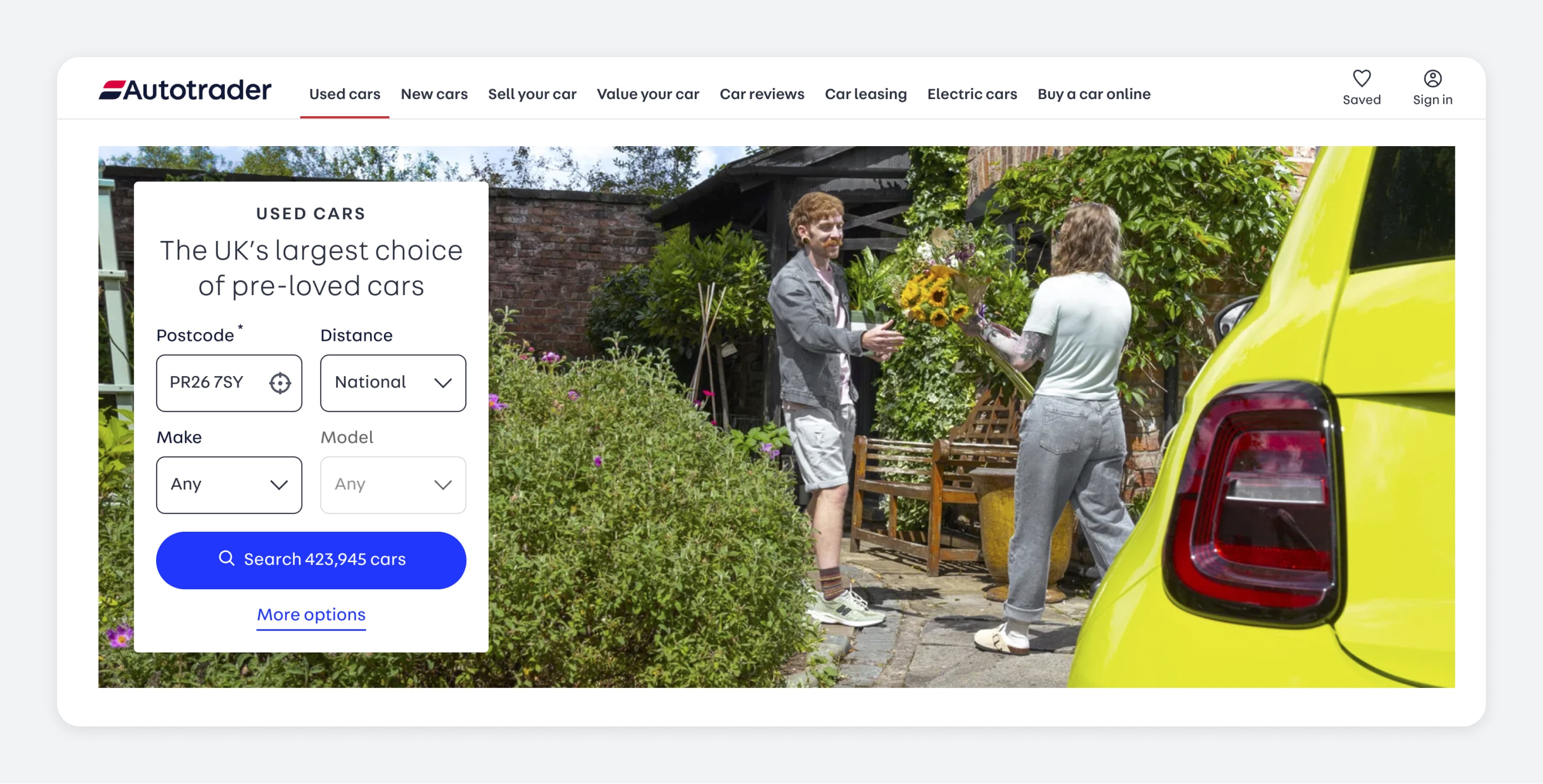
You can filter by make, model, price, mileage, fuel type, gearbox, seller type, you name it. Whether you're looking for a two-year-old hatchback with warranty or a £1,500 runaround from a local seller, AutoTrader has the lot.
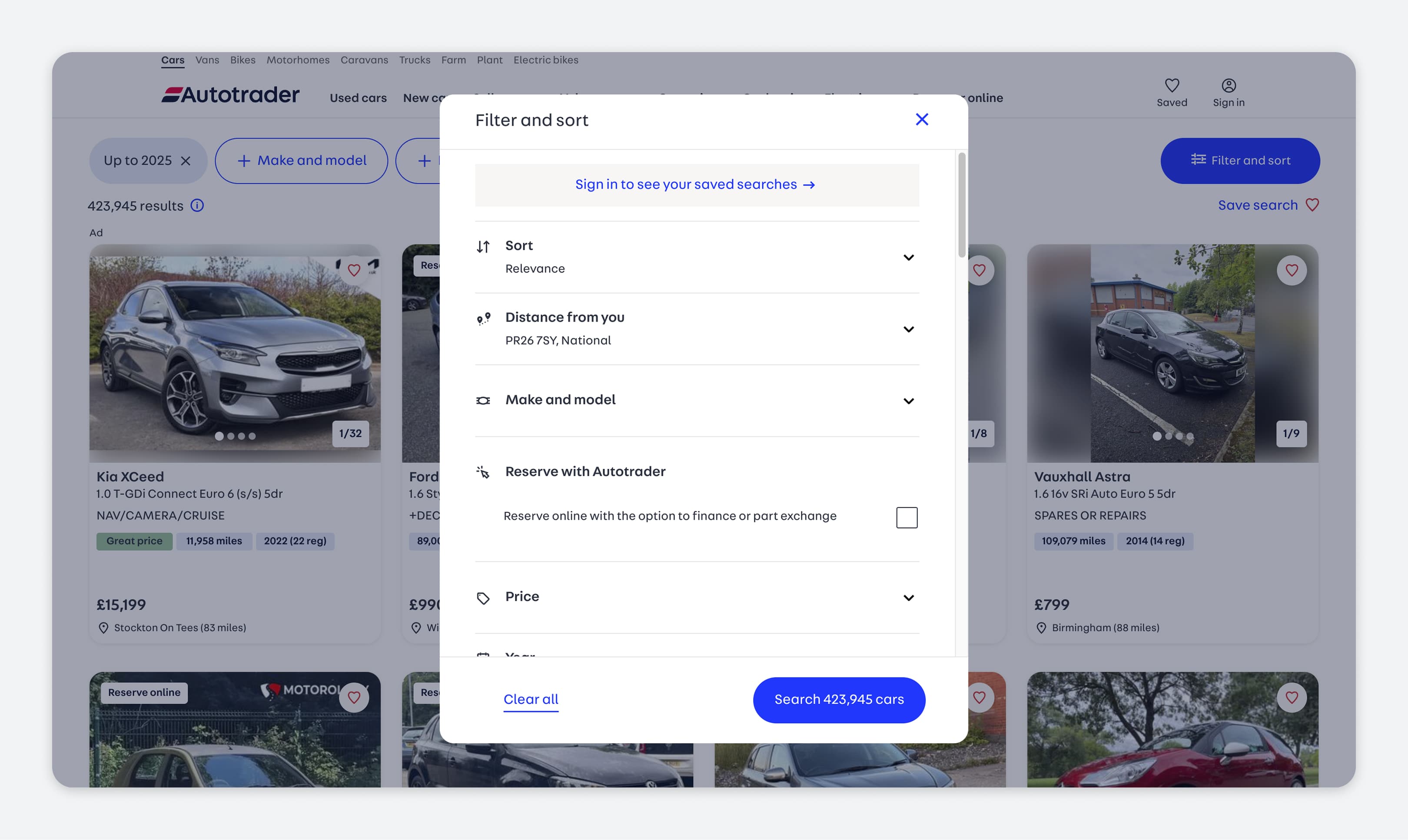
The platform also gives you price guidance, vehicle history checks and finance options so you're not flying blind. And if you're feeling overwhelmed, their valuation tools and buyer reviews narrow things down fast.
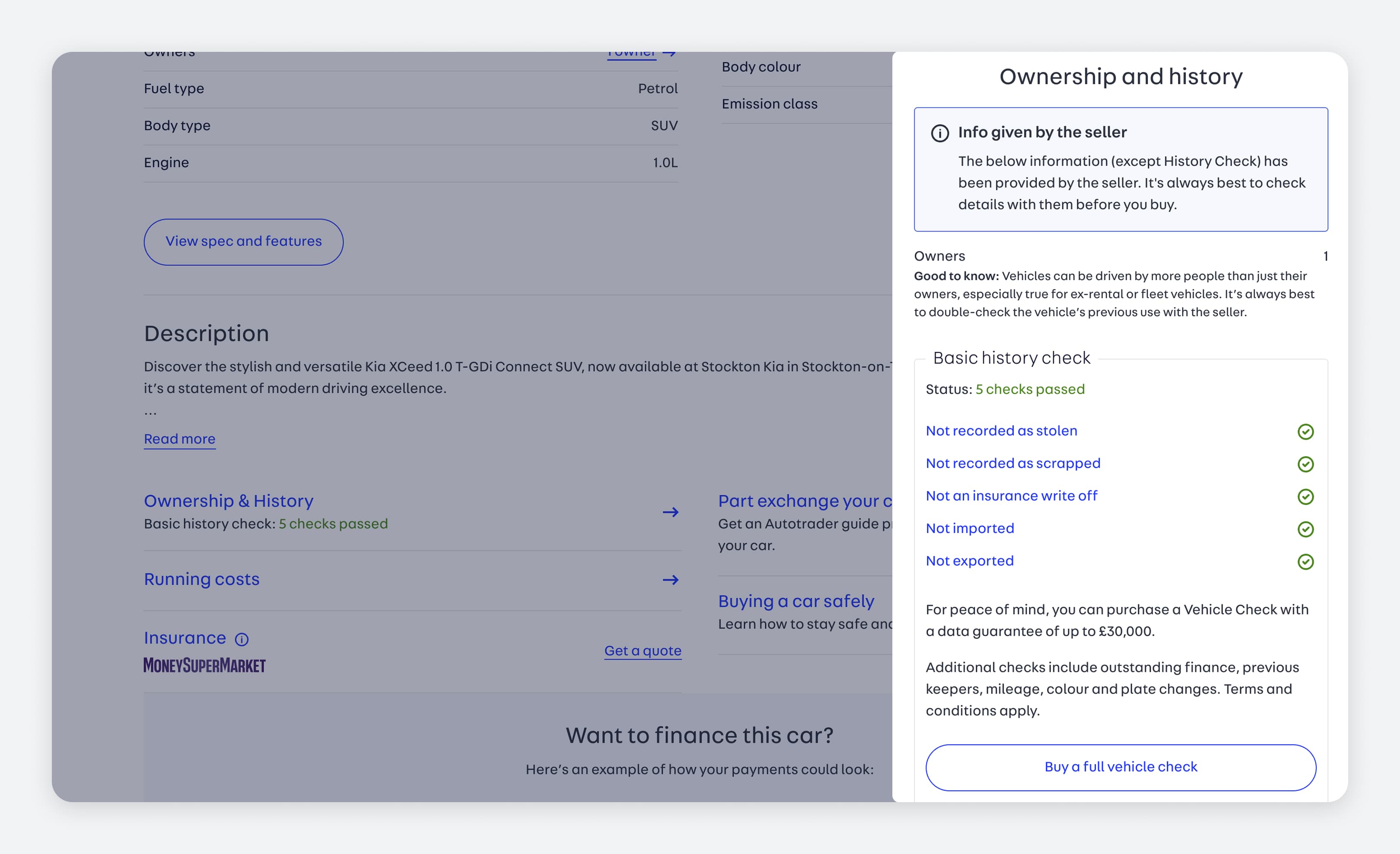
If you want full control over the process, including the chance to contact sellers directly, view the car before purchase, negotiate and arrange low-cost dropoffs, Auto Trader is where you start.
Best for: Buyers who want to browse everything from budget private sales to nearly-new dealer stock in one place and who are comfortable doing a bit of legwork.
If you want everything digital, fixed price, and delivered, Cinch offers one of the most streamlined and modern car-buying experiences in the UK today. Cinch lets you browse, finance, and order a used car entirely online, with no need to visit a showroom.
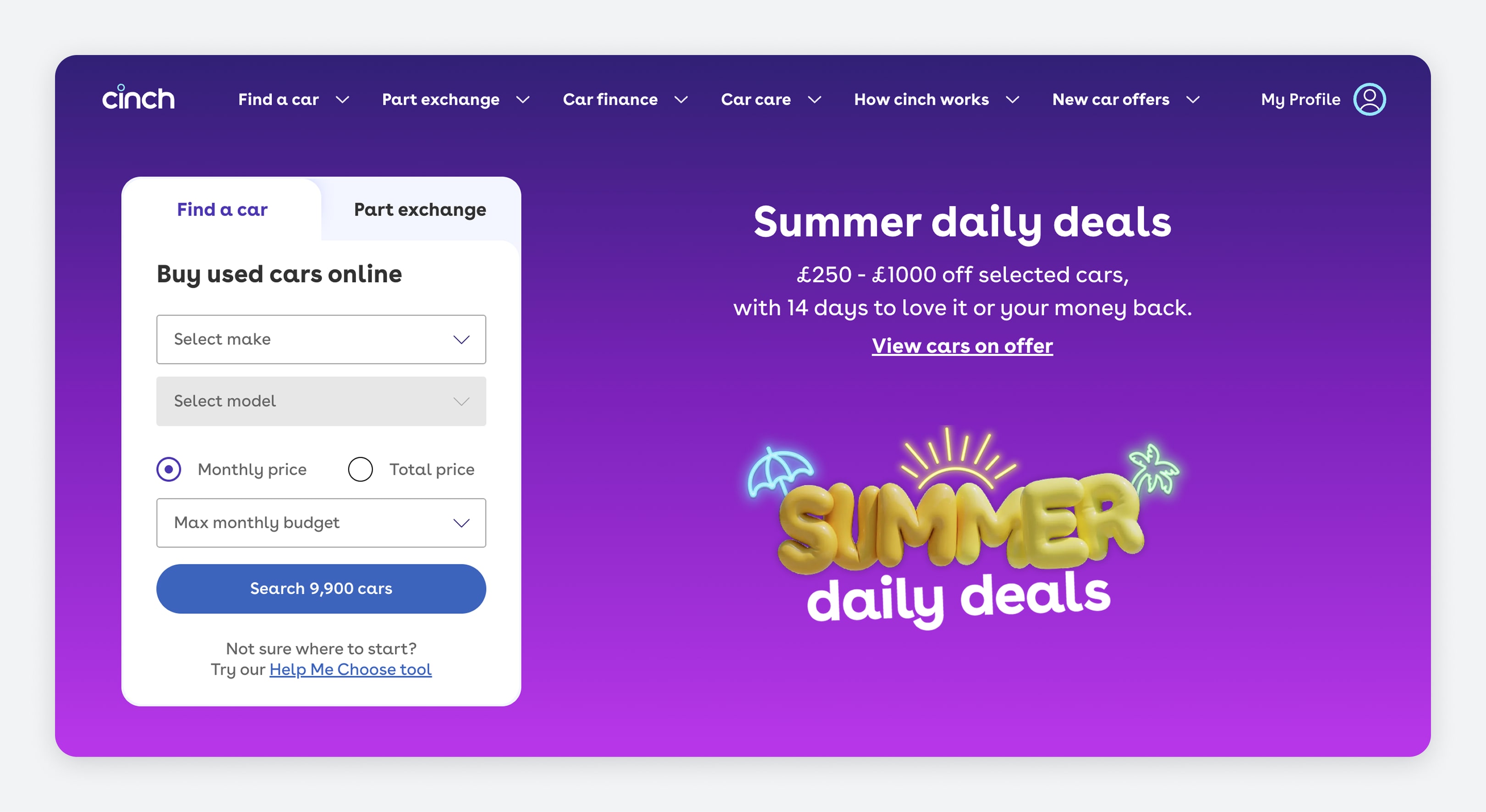
Cars come with comprehensive detail: 360° photos, condition notes, service history and a full 90-day warranty. You also get a minimum six-month MOT and a 14-day money-back guarantee, including free collection if you change your mind. Delivery options include home delivery or collection from one of over 100 collection points around the UK.
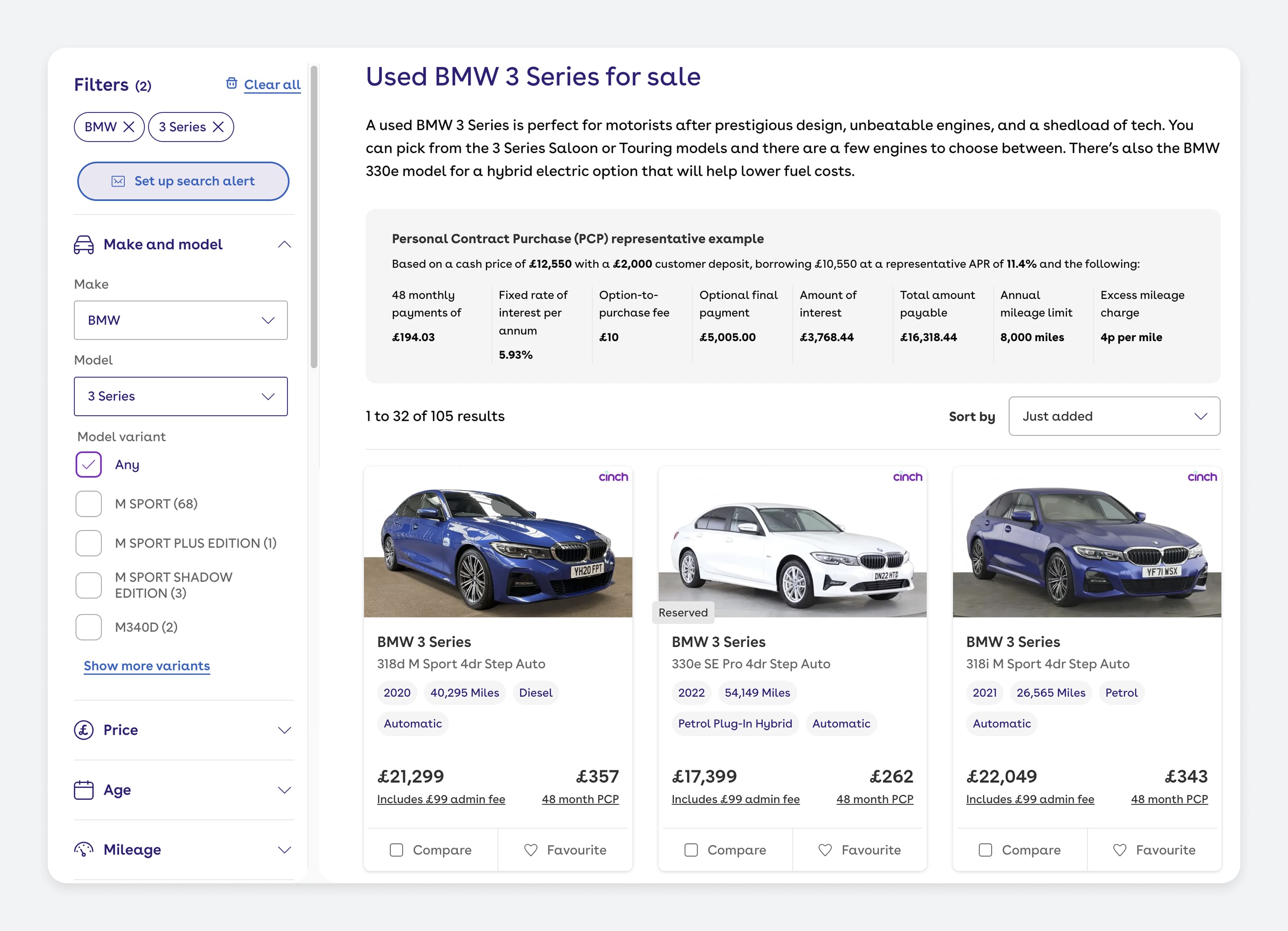
But like we’ve said, buying entirely online carries risk. In a high-profile case in the Times involved a faulty Range Rover sold by Cinch. The buyer rejected the car, pushed for a refund and eventually won full reimbursement plus compensation, but only after months of hassle.
Best for: A fast, entirely online car-buying route offering fixed pricing and transparent terms with no need to haggle.


Motors.co.uk features over 200,000 listings from more than 5,000 UK dealers, plus more from independent sellers. You’ll find everything from budget-friendly hatchbacks to nearly-new SUVs. The platform offers browsing via its slick website and mobile app (rated 4.8/5 on Apple, 4.6/5 on Google).
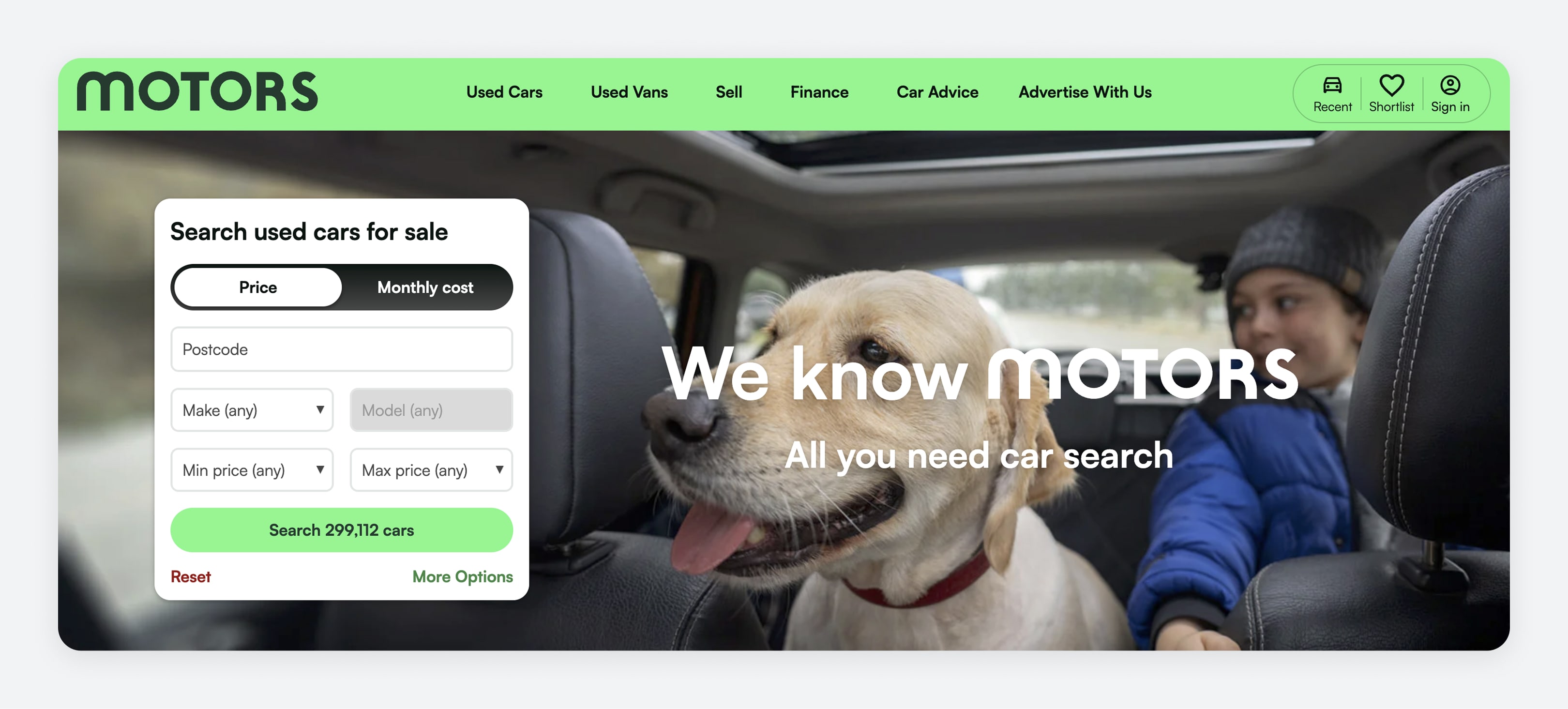
Like AutoTrader, the platform offers transparent pricing, clear photos, hundreds of filtering options, full condition descriptions and optional finance and insurance add-ons. In fact, nearly nine in ten listings come with a basic HPI-style history check upfront. You'll see if a car’s been stolen, scrapped, written off or even had a colour change before you even click.
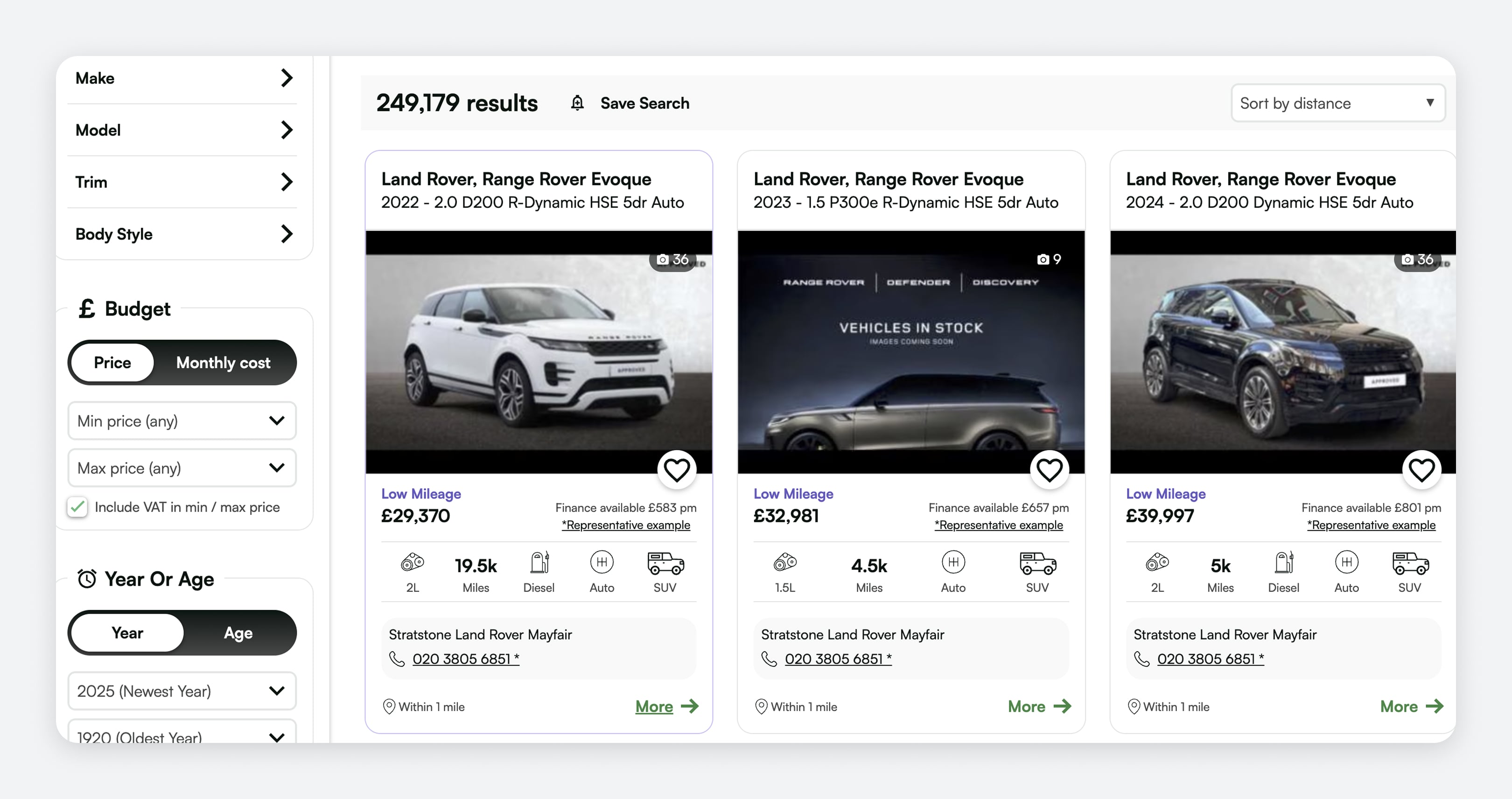
The Smart Search filters are excellent—search by price, fuel type, ULEZ compliance, running costs, number of seats, even colour. You’ll find a wealth of buyer advice, walkthroughs, price guides and car reviews sprinkled throughout the site to help you make informed decisions.
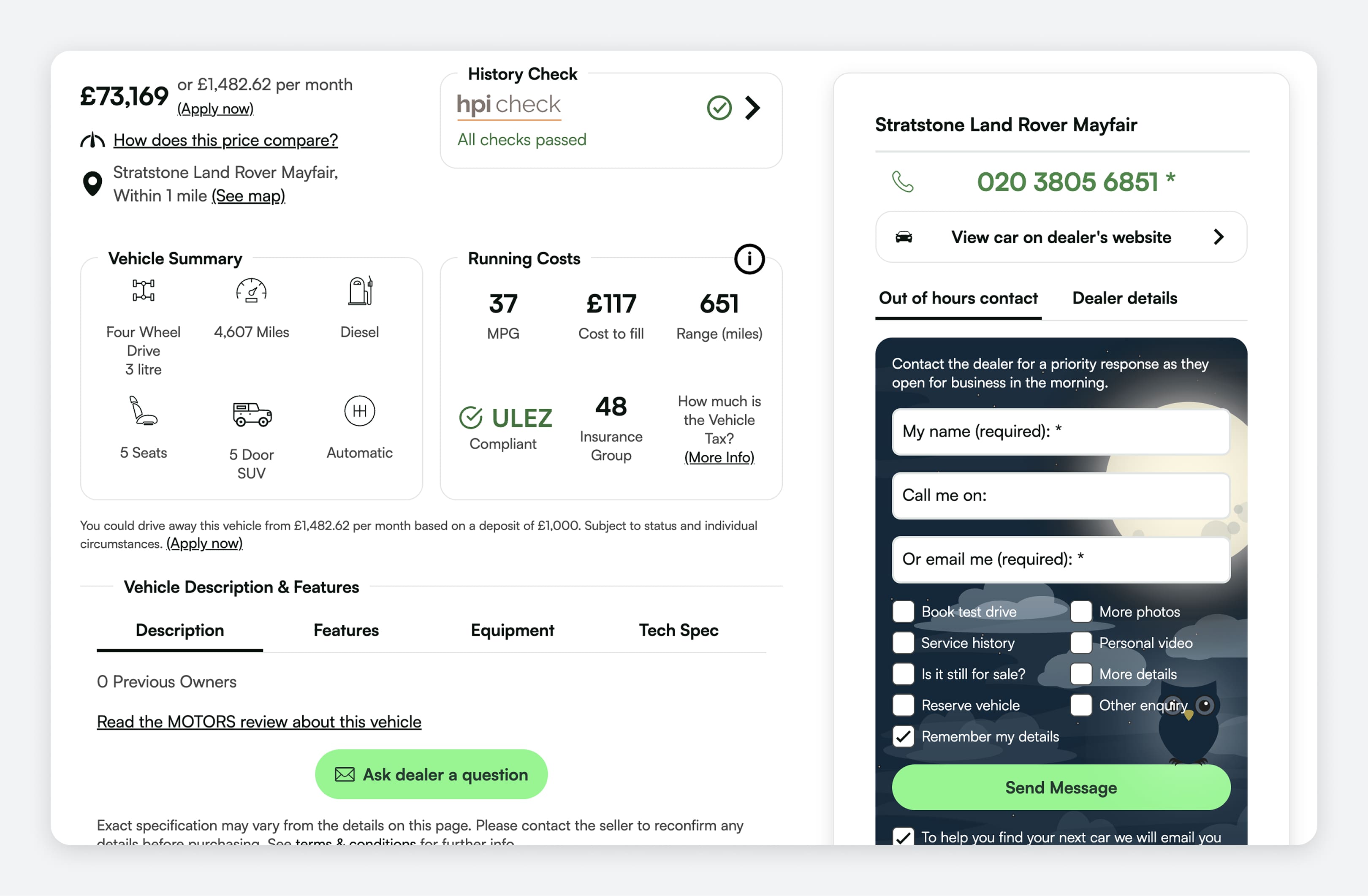
The catch is that it’s still not a direct-retail platform. You still deal with independent dealers, so warranties and deliveries vary.
Best for: Buyers who want a wide selection from vetted dealers and more structure than private classifieds, but still want control over what they inspect and who they work with.
If you’re looking to save serious money and don’t mind taking on more risk, Facebook Marketplace is tempting. But this is the Wild West of used car sales. It demands vigilance and due diligence.
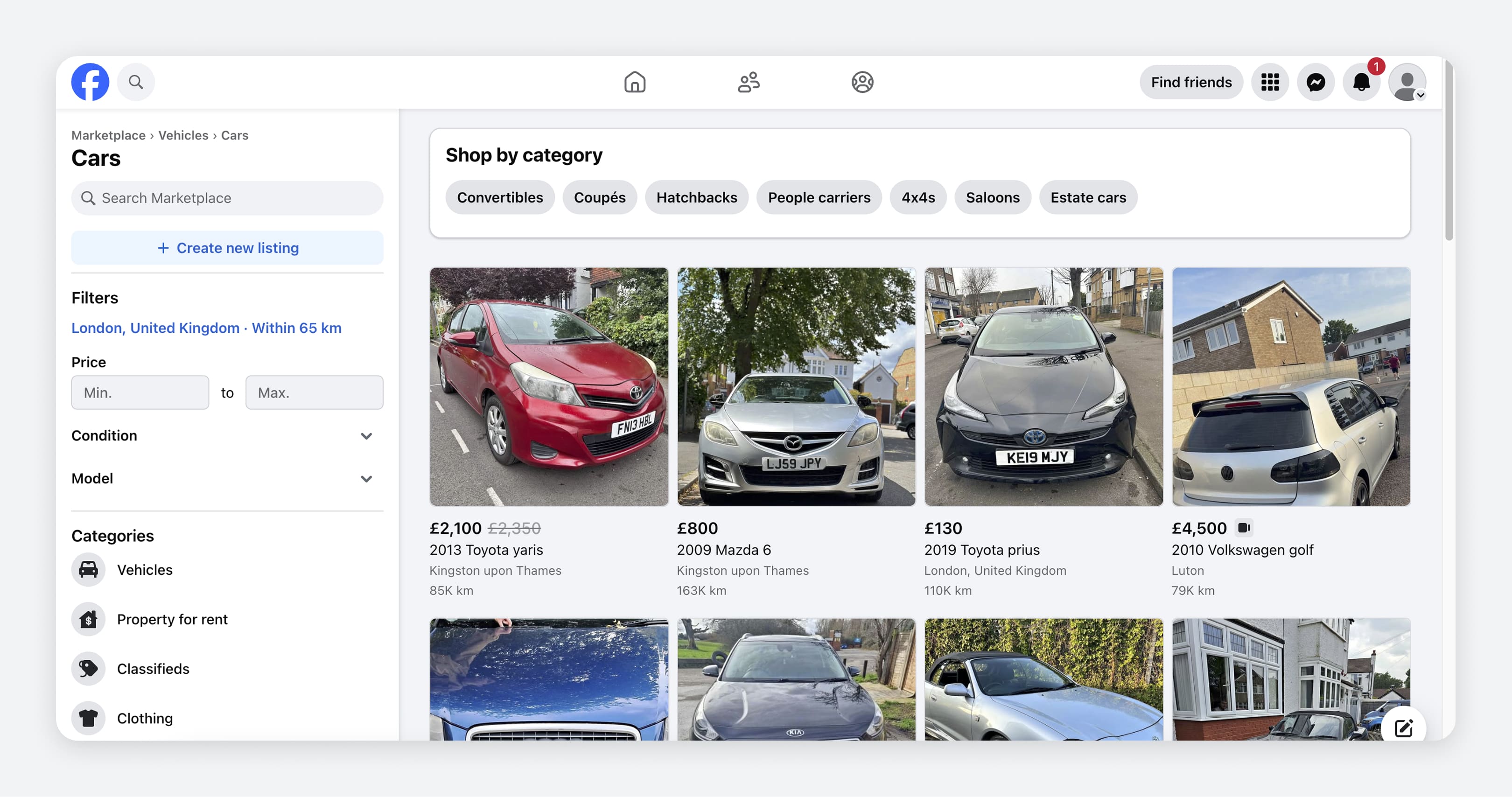
Because most listings are direct from private sellers, you’ll often find cars priced significantly below dealer offerings, from £500 project cars to £3,000 low-mileage bargains. There are plenty of buyers who come out of it reporting legitimate savings.
You can filter by location and deal in person, which eliminates delivery costs and delays. And it’s free to list — no intermediaries, no fees.
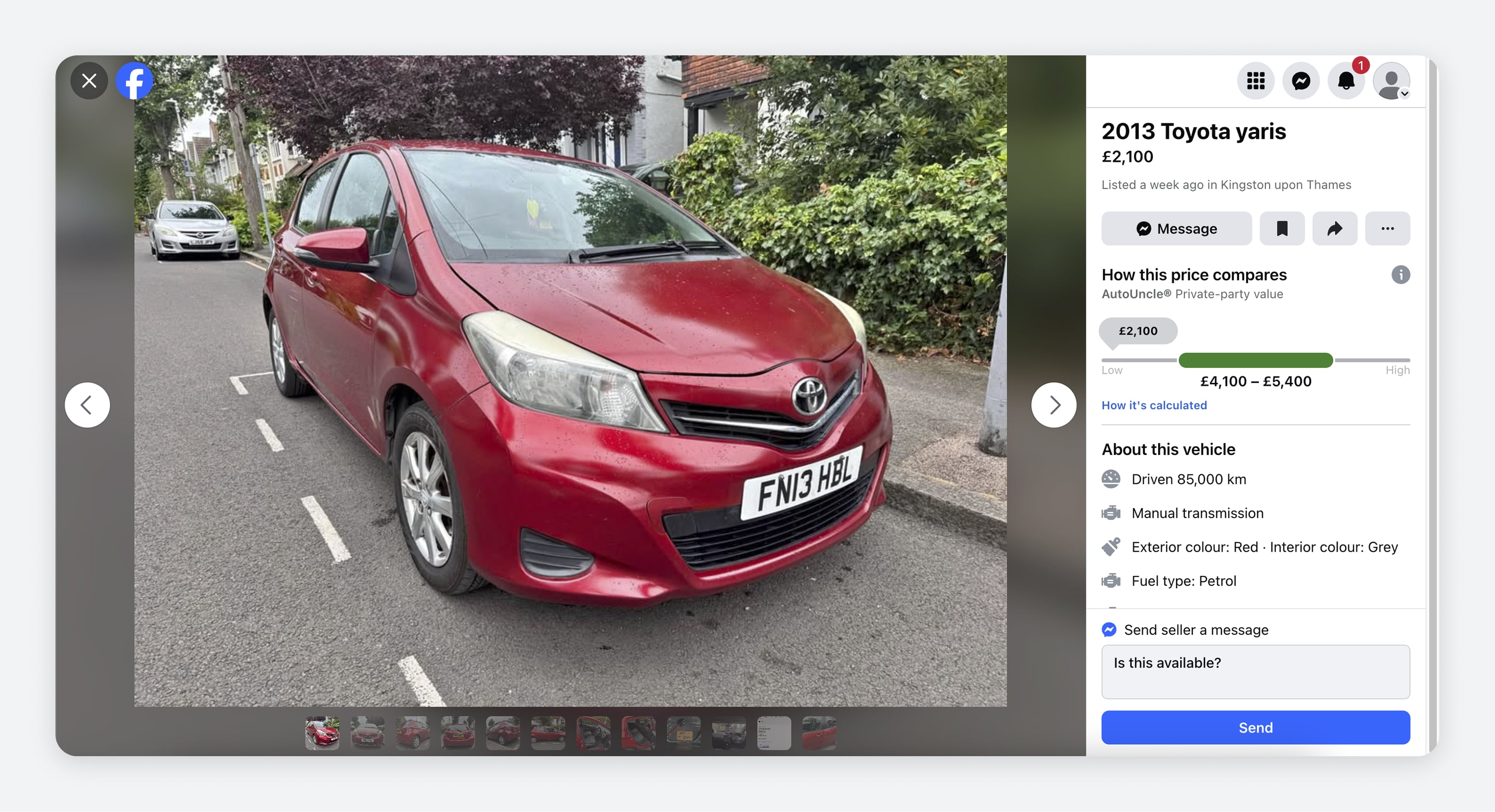
But remember that the scam risk is real (and common). Fake listings, cloned plates, cars advertised “as seen” or misrepresented, these are all issues reported frequently.
There’s no buyer protection beyond what you negotiate face-to-face. Payment happens via cash or bank transfer. And if things go wrong, there’s no warranty, no return policy and no recourse unless you escalate matters yourself .
Best for: Bargain-hunters looking for older budget cars and buyers comfortable doing all vetting themselves.
eBay Motors combines auction-style bidding with Buy It Now listings, so you can either play the bidding game or snap up a deal instantly. The site is well known, has a huge user base, and offers powerful search tools to zero in on the exact make, model, and mileage you want.
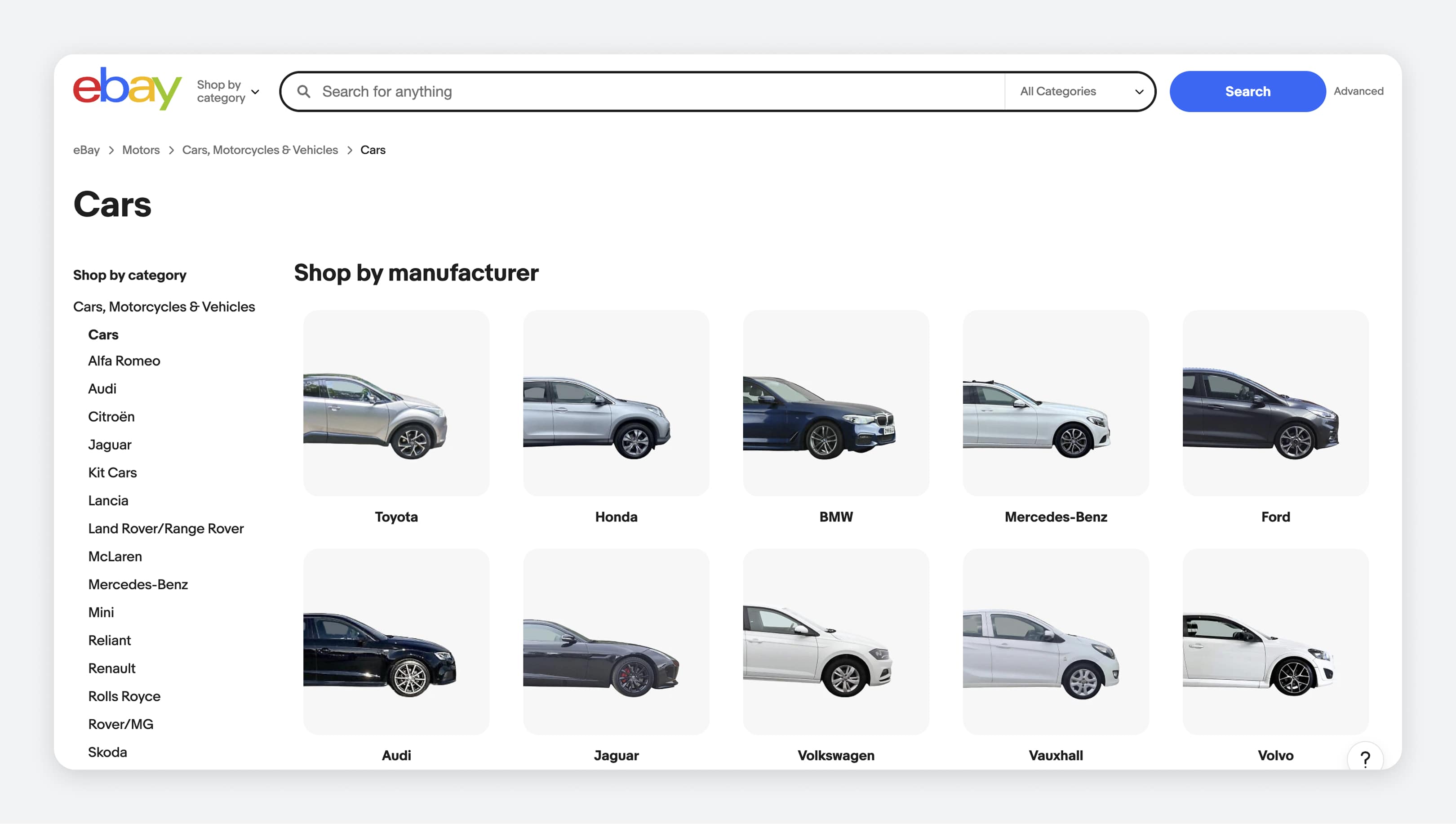
The best part about eBay Motors is it offers a huge inventory up and down the price range. You’ll find everything from rare classics to bargain private sales (in fact, auctioned-off cars like rare classics are something eBay does best).
There’s also feedback-based trust. Buyer and seller reviews help you spot red flags quickly. And the platform’s got its own secure payment systems and some protections via eBay’s buyer protection or Vehicle Purchase Protection programmes.
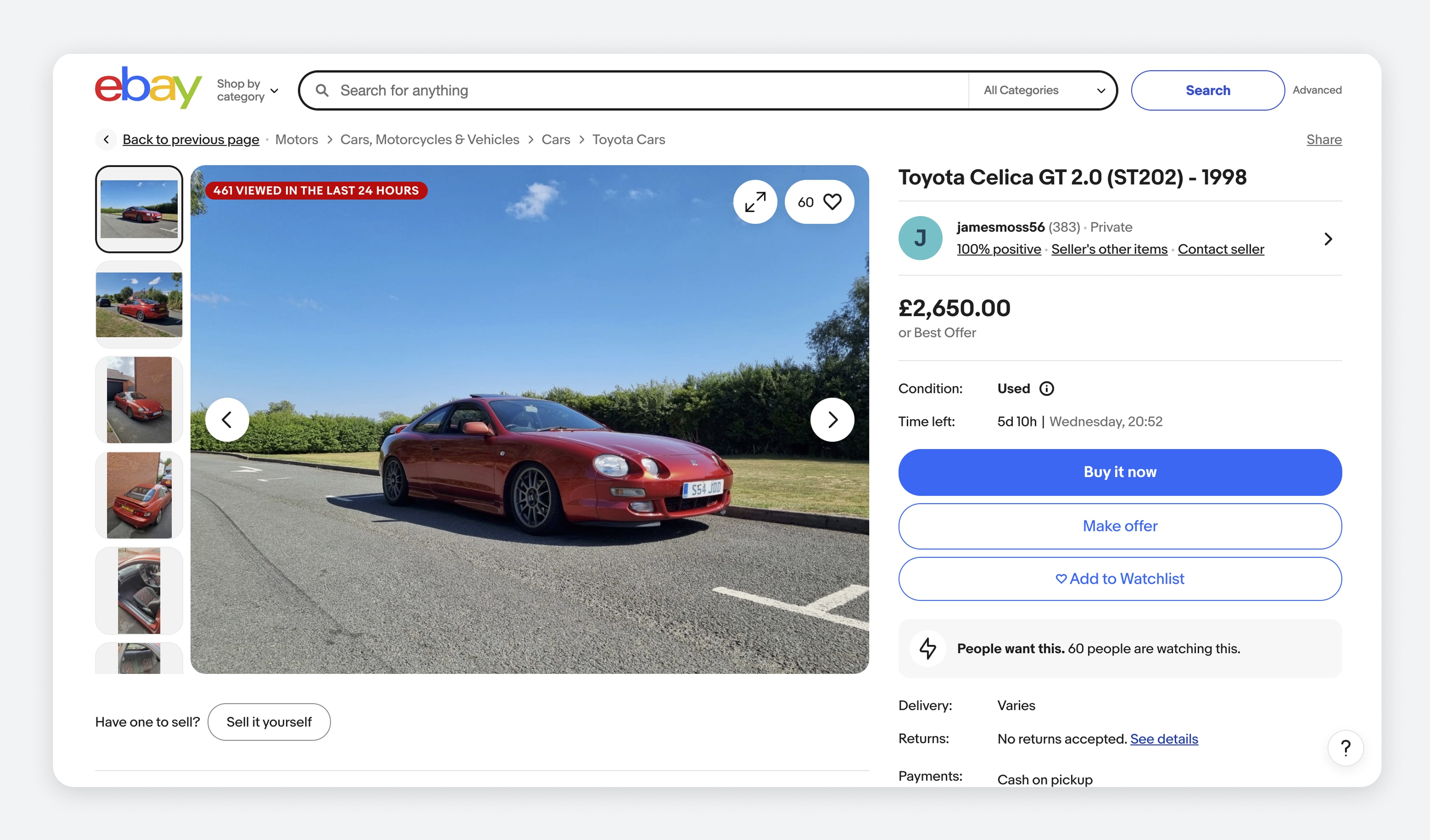
There still isn’t face-to-face validation until you can view it in person, though, which means scams and misrepresentation still happen. On top of that, buyer protection doesn’t always cover vehicles (particularly in private sales) and funds can be lost if used outside official pathways
Best for: Buyers who are looking for classic cars, rare models, or bargains not listed on dealer sites.
Gumtree is packed with private‑seller listings, often with minimal overhead and very low prices, especially on older vehicles or project cars. Posting is free (unless you pay for boosted visibility), making it ideal for low‑priced adverts.
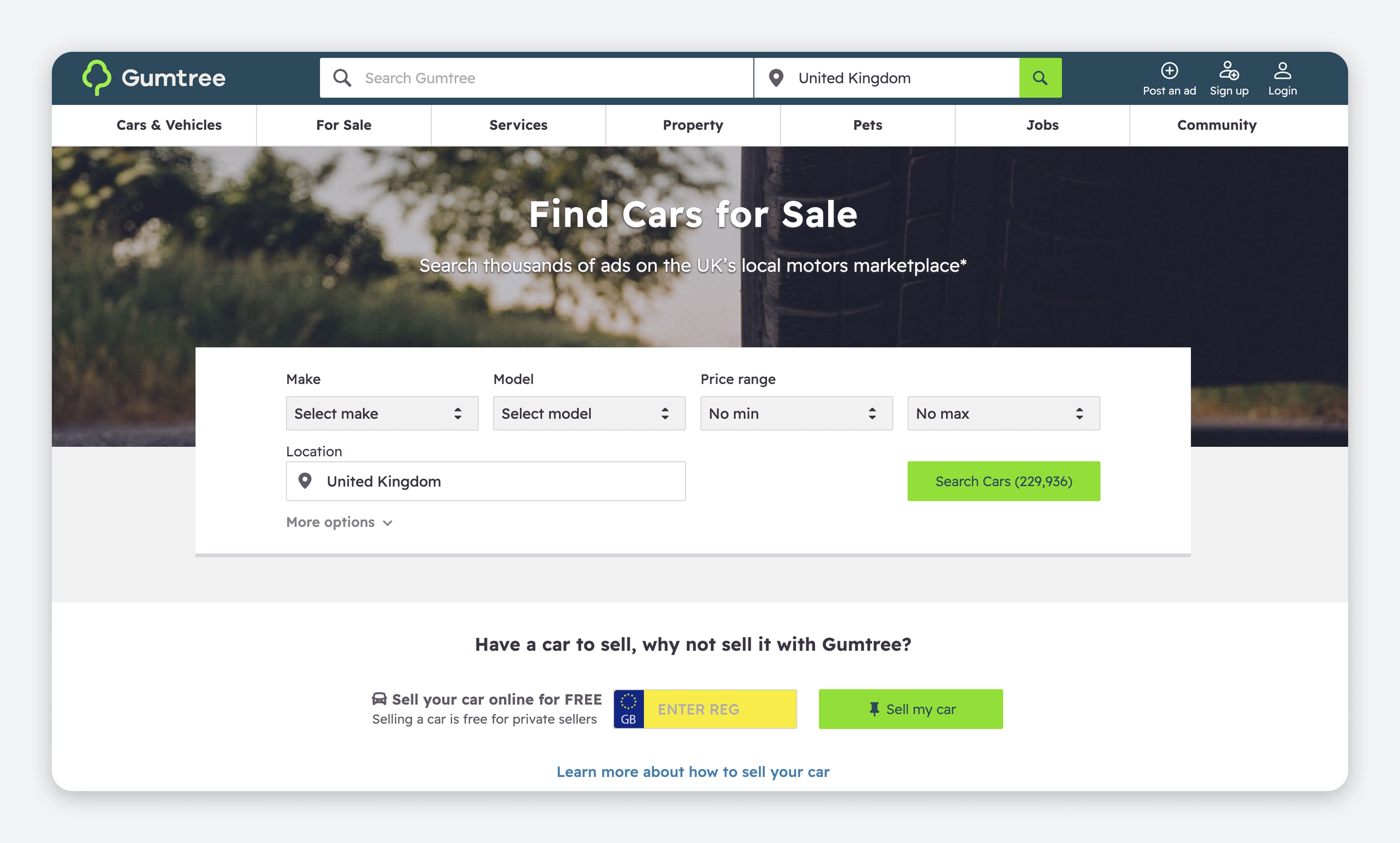
It’s similar to Facebook Marketplace but is a bit more purpose-built for car buying and selling. Local trading means you can meet in person, inspect the car face‑to‑face, and avoid delivery costs.
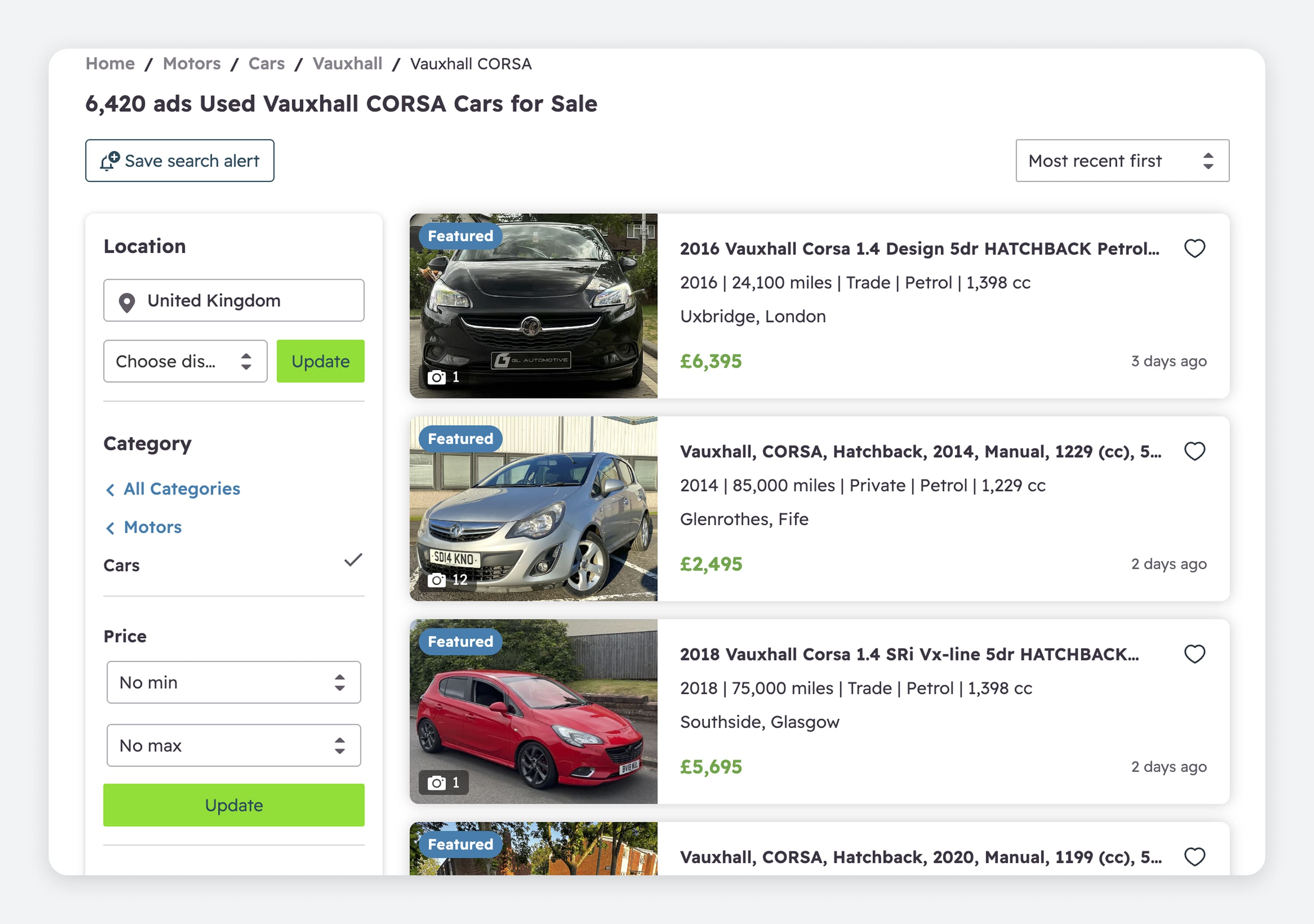
But you have to be careful. Scams on Gumtree range from fake ads and cloned plates to aggressive phishing-style approaches and bogus payment schemes.
And like Facebook Marketplace, tragic incidents have occurred: in one alarming case, a buyer was run over and robbed when dealing with a seller in Bristol after agreeing to meet at a train station for a £500 car.
Best for: Buyers who want the absolute cheapest second-hand cars, are confident inspecting a car themselves and managing risk and are strictly buying locally and in person.
While online platforms dominate headlines, buying a used car offline still makes sense in lots of situations. If you want to inspect the vehicle yourself, build rapport with a seller or negotiate face-to-face, this is the way.
Here are the best offline options in the UK and who they're best suited for:
These are small, often family-run garages that sell a mix of budget and mid-range used vehicles. You’ll usually find older models, part-exchange cars, and decent deals—especially if you’re willing to negotiate.
They typically offer basic warranties, flexible pricing, and more room for personal interaction but stock can be hit or miss and after-sales support varies greatly.
Franchised dealers like Ford Approved Used and Toyota Used Cars are the most trustworthy and structured offline options. They sell manufacturer-approved used vehicles that go through multi-point checks, include manufacturer-backed warranties and even come with perks like breakdown cover in some instances.
Prices are higher, but so is peace of mind. If you want near-new quality and full-service aftercare for brand-specific vehicles, this is the best choice for you.
Think of companies like CarShop and Motorpoint as the offline version of Auto Trader: huge indoor forecourts with hundreds of used cars on display. They focus on volume sales, which means competitive pricing, fast turnaround, and decent financing options.
Warranties are usually included, and you can compare multiple brands side-by-side, but don’t expect the same depth of personal service or room to negotiate as with a local dealer.
Car auctions on platforms like Copart offer wholesale prices, but come with high risk. You’ll often find ex-lease cars, fleet vehicles, repossessions, or dealer part-exchanges. Most are sold “as seen”, meaning no returns, no warranties, and no test drives.
You’ll need to register, understand auction fees, and be comfortable buying under pressure, but the savings can be substantial. That’s why trade-savvy buyers go this route.
You might find a one-owner car with full service history from just down the road. But you need to do all your own checks, arrange viewings, and accept that most listings are basic at best and scams or people out to get you at worst. There’s also near-zero buyer protection.
Still one of the most underrated ways to buy a used car. Friends, family, neighbours or coworkers might be selling a car or can vouch for someone who is. These deals often come with more transparency and trust than anything you’ll find online.
No matter whether you’re buying from a dealer, private seller or online platform, make sure you run through these essential checks before parting with your money:
Doing these checks properly could save you thousands if the car winds up being different than it appears on paper.
Anthony Sharkey is COO at New Reg Limited (Car.co.uk, Trader.co.uk, Garage.co.uk), driving innovation in vehicle recycling, logistics, and customer experience.
Most people only buy a few cars in their lifetime, so it’s easy to overlook key checks or fall for a polished listing. What we see every day in the trade is that the best deals come to those who do their homework. That’s especially the case when it comes to documents, vehicle history and seller behaviour. Whether you're buying online or at a local dealership, you need to approach it like a pro would.
Even in 2025, buying a used car comes with its fair share of risks. In fact, the massive surge in demand for used cars has caused a lot of bad actors to enter the scene. The risk is greatest when you’re dealing with private sellers and platforms with no formal verification process.
Here are the most common red flags and scams to watch out for:
If you come across any of these, look elsewhere and know the odds it’s a scam are extremely high. Let’s talk a little bit more about three, specifically: clocked mileage/misleading photos, stolen or cloned cars and sellers who pressure you for immediate payment.
Clocking (the act of rolling back a car’s mileage) is still alive and well. The signs aren’t always obvious, but the consequences can be huge: overpriced cars, hidden wear and expensive repairs that naturally come with high-mileage vehicles.
In 2025, you also have to deal with AI-edited car images. Some sellers use image-enhancing tools to remove dents, rust, or faded paint from photos. What looks pristine online could be a very different story in person.
Check MOT history on the DVLA site and make sure mileage entries increase consistently year to year. Compare the mileage against service records, invoices, and physical signs of wear (steering wheel, pedals, seats). And be wary of listings that only show “artsy” angles or close crops. Always ask for extra photos if you don’t feel there are enough.
Some of the most convincing scams involve cloned cars, which are vehicles that carry the identity of another (legitimate) car, often to hide the fact they’re stolen, written off, or under finance.
The most common clue? A V5C logbook that doesn’t match. Either the VIN, registration, or seller details will be off, or the seller will avoid showing you the logbook altogether. This is a huge reason never to buy a car without a V5C.
Always check the VIN in three places: under the bonnet, windscreen, and driver-side door sill. Make sure it matches the V5C and HPI check. Also verify the V5C document has the correct watermark and isn’t a photocopy.
Scammers and shady sellers push for fast deposits, instant payments or “holding fees” on platforms like Facebook Marketplace and Gumtree. The sense of urgency is designed to rush you before you can do your due diligence, so they can take off with your money as quickly as possible.
Never pay anything until you’ve viewed the car and verified its documents. And always use secure, traceable payment methods.
With the used market growing faster than ever in 2025, you’ve got more choice, more platforms and more ways to buy than any time before. But that also means more decisions, more noise and more chances to get it wrong.
Whether you buy online or in person, from a franchise dealer or a local garage, the key is preparation. Know your budget. Do your checks. Understand the red flags. And most importantly, don’t rush.
The right car is out there, and when you find it, you’ll know.

